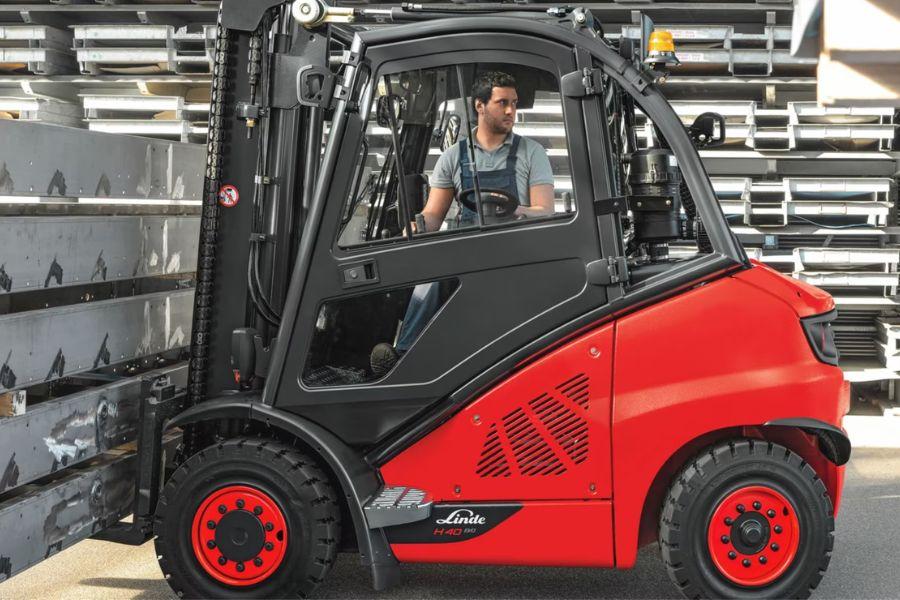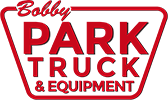Information Request
Need more information about one of our vehicles? Simply fill in the form below and we'll be in touch.
Rather Make a Phone Call?
(205) 759-4891We will be happy to meet your needs.
Benefits of Piggyback Forklifts

Piggyback forklifts, or truck-mounted lift trucks, are multi-functional machines meant to improve material handling procedures in terms of efficiency. These small yet mighty forklifts have several advantages that enhance productivity and effectiveness in most industries. This blog will discuss five critical benefits of using piggyback forklifts and their relevance in contemporary logistics and construction scenes.
Advantages of a Piggyback Forklift in Tuscaloosa, AL
The advantages of a piggyback forklift reverberate well with firms from different industries. This high-performance material handling equipment improves efficiency, space optimization, and mobility in construction warehousing and retail agriculture, making it a competitive advantage in dynamic business settings.
Versatility and Mobility
The main advantage of these forklifts, including the Moffett forklift and piggyback truck for sale, is their availability and portability. Unlike ordinary forklifts restricted to operating only inside the warehouse or in a designated area, they can easily be carried on top of trucks and trailers transported to different work areas. This mobility makes forklift operators work effectively on various sites such as construction sites, warehouses, distribution centers, and shopping stores. Immediately offloading and deploying the forklift directly from the truck leads to fast loading/unloading time, increasing overall productivity.
Space Optimization
Another benefit of a piggyback forklift, is that it provides considerable space-saving opportunities, especially where storage areas are either restricted in physical size or expensive. Since this equipment is mounted on the backside of trucks or trailers, it prevents any need for additional storage facilities that should be reserved to carry a separate and distinct unit. The compact design eliminates transport costs and frees more space for use in the move. Moreover, they are easy to fit on the truck or trailer when not in use, which allows for reduced space utilization.
Time and Labor Savings
Another vital time and labor-saving feature of these forklifts is their ability to perform the processes associated with material handling. Using traditional forklifts usually involves separate transport arrangements, hence delays and additional labor costs.
On the contrary, piggyback forklifts simplify logistics by combining material handling functionality with transport, thus eliminating loading and unloading processes. This level of integration results in a substantial time reduction because materials can be directly unloaded and distributed to the delivery point, eliminating handling activities and labor costs.
Enhanced Maneuverability
Piggyback forklifts have improved controls that enable them to operate in tight spaces and on all terrain. Their small size and agility make it easier for operators to navigate confined locations, including construction sites or warehouses, where space is limited.
Furthermore, with high technology capabilities, such as four-wheel drive or all-terrain performance, it can easily handle various surface conditions, improving functionality. These are the benefits of buying piggyback forklifts.
Cost-Effectiveness
Besides the operational ones, they are more cost-effective than normal ones. By integrating material handling and transportation functions into a single unit, these forklifts cut out separate equipment while cutting down capital spending.
In addition, their small size and high fuel capacity make them cheaper in terms of maintenance costs. With the flexibility and portability of these forklifts, transportation and labor costs can be further decreased, making them more beneficial to many industries.
Where Are These Piggyback Forklifts Used in Which Industries?
The piggyback forklifts that can be purchased from dealers, like Truck Forklifts, are highly versatile and mobile, resulting in widespread use across diverse industries. Here are vital industries where these forklifts are commonly used:
Construction Industry
- Ideal for handling materials in construction sites with limited space.
- Quick deployment directly from delivery trucks enhances on-site efficiency.
Warehousing and Distribution
- Space-saving design optimizes storage in warehouses.
- Mobility allows piggyback forklifts, to navigate aisles and handle materials directly from delivery vehicles.
Retail and Merchandising
- Efficient unloading of goods directly at retail stores.
- Compact size facilitates maneuvering in retail spaces with restricted access.
Agriculture
- Well-suited for handling materials on farms and agricultural settings.
- All-terrain capabilities make them adaptable to varying outdoor conditions.
Logistics and Transportation
- Integration of material handling and transportation streamlines logistics operations.
- Reduces the need for separate loading and unloading equipment, saving time and labor.
Manufacturing Facilities
- Maneuverability in confined spaces enhances efficiency on factory floors.
- Quick transportation between production areas improves workflow.
Outdoor Storage Yards
- Capable of navigating rough terrains commonly found in outdoor storage facilities.
- Versatile handling of materials in open-air environments.
Building Materials Supply
- Efficiently handles construction materials such as lumber, bricks, and concrete blocks.
- Reduces the need for additional equipment during material transportation.
Can piggyback forklifts be used in rugged areas?
Most piggyback forklifts have four-wheel drive and all-terrain designations. They perform well on construction sites, outdoor storage yards, and agricultural areas on rugged grounds.
Can one person operate forklifts?
These forklifts are usually one-person operations that make them easy to handle and get around, ideal for material transfer tasks. However, appropriate training and certification are necessary to ensure safe operation.
What maintenance is necessary for forklifts?
As with other heavy equipment, they require regular maintenance to ensure efficiency and safety. This could involve regular inspections, oiling moving components, checking fluid levels, and correcting problems discovered while it is running. It is vital to adhere to the manufacturer’s maintenance guidelines and schedule for the equipment to achieve optimum functionality, longevity, and liability.
Conclusion
Piggyback forklifts, are suitable investments for organizations looking to streamline their material segment. Aside from the low cost, their capacity for versatility, mobility, space utilization, time and labor savings, and enhanced maneuverability characterize these compact yet powerful forks, leading to higher efficiency and productivity. Company owners can contact our experts by visiting the website.

